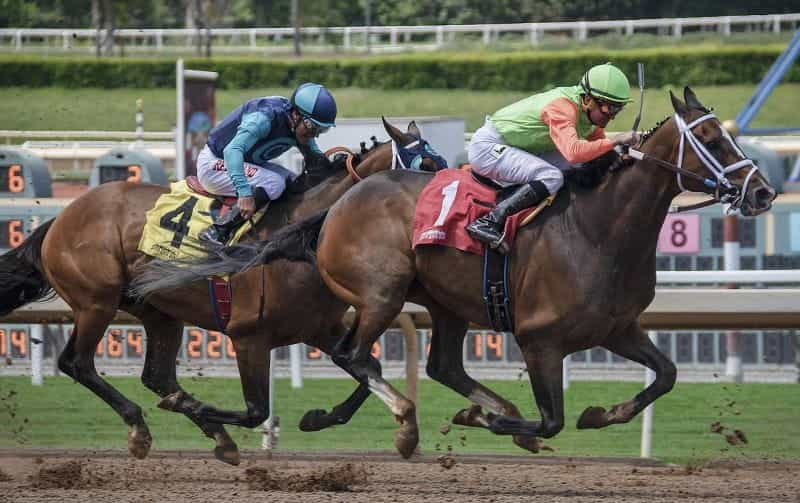Asian Racing Federation Raises Alarm on Illegal Betting
According to the governing body of Asian horse racing, the Asian Racing Federation, the majority of betting operators in its jurisdiction do not meet regulatory standards. The incredible revelation paints a very dire picture of an industry that has become completely lawless and beholden to the whims of organized criminals. The organization has described the rise of illegal betting as a ‘global social issue’, highlighting the increased proportion of websites that do not meet the minimum licensing or regulatory requirements.

Asian horse racing has taken a major step forward in recent years in terms of licensing and regulatory compliance, but following a recent report released by the Asian Racing Federation, it is clear that money laundering and illegal betting are still running rife throughout the sport. ©clarencealford/Pixabay
Publishing its highly anticipated State of Illegal Betting report, the Asian Racing Federation conducted an enormous analysis on the current demographic of betting companies across the 27 separate jurisdictions that fall under its responsibility. The racing authorities listed include Asia, Oceania, Africa and the Middle East. Within the report the organization concluded that 61% of betting websites currently accessible within these regions were either licensed but not following regulation, or they were unlicensed and not following regulation. That leaves just 39% of betting websites in the category of fully licensed, and following regulation rules.
Licensed but under-regulated websites refers to a category of operator that is licensed to operate – and in theory is a trusted entity – but has begun offering betting markets to customers outside of their legally agreed jurisdiction. The unlicensed and unregulated operators are the true black-market actors within the gambling economy, these websites have received no license to operate, have not fulfilled any pre-required set of regulatory policy, and provide betting services with complete impunity.
The erosion of standards and boundaries within the locale betting region has taken many by surprise, there is a huge contrast between the companies operating legally and those completely circumventing the licensing and regulatory laws. It is only when a betting company operates within the limitations of the law, accepting bets only from customers where they have been licensed, that the protections afforded to modern gamblers and integrity of the sports on the platform can be adequately maintained.
Black-Market Operators Posting Stronger Performance
An interesting caveat to this story is the difference in performance in the context of web traffic between fully licensed operators, and those in the black-market. The data used in this investigation is from the previous 2 financial years, and reveals that the unregulated operators grew by 64% in this period, compared to a 37% growth of the regulated operators. This clear growth advantage of unregulated operators is nearly double as the law-abiding ones. This mismatch in financial performance is an important metric, and shows how difficult this problem will be to eradicate, given the financial incentives to maintain the status-quo from black-market operators.
In terms of userbase and geography of the web traffic, there has been a compelling and strong indication that the majority of these users are originating from Australia and South Africa. The data goes even further in revealing exactly what sports these users are choosing to bet on, with the overwhelming preference being to bet on horse racing, with 82% of bets placed on these websites choosing to stake wagers on horse racing markets.
Commenting on the systemic risks that these types of operators pose for the industry as a whole, it has been noted in the reports that the risk of money laundering operations exploiting the unregulated nature of these operators is starting to become increasingly prevalent. Particularly noted within this report is the crackdown against casino junkets in Macau, this action has caused a situation where criminals are left with no other alternatives than to turn to unlicensed sports betting operators as a means to continue the business of money laundering that this industry once offered them.
Concluding their momentous report into the state of money laundering across sport, the Asian Racing Federation make the point that the time for division between regulators and good actors in the betting industry is over. The main priority for all honest and hard-working operators should be to strengthen relationships and collaborative efforts, to ensure they are not compromised by the organized crime groups. Constant vigilance and focus on prevention remains hyper-important to maintain a resilience against the insidious impact of organized crime.



